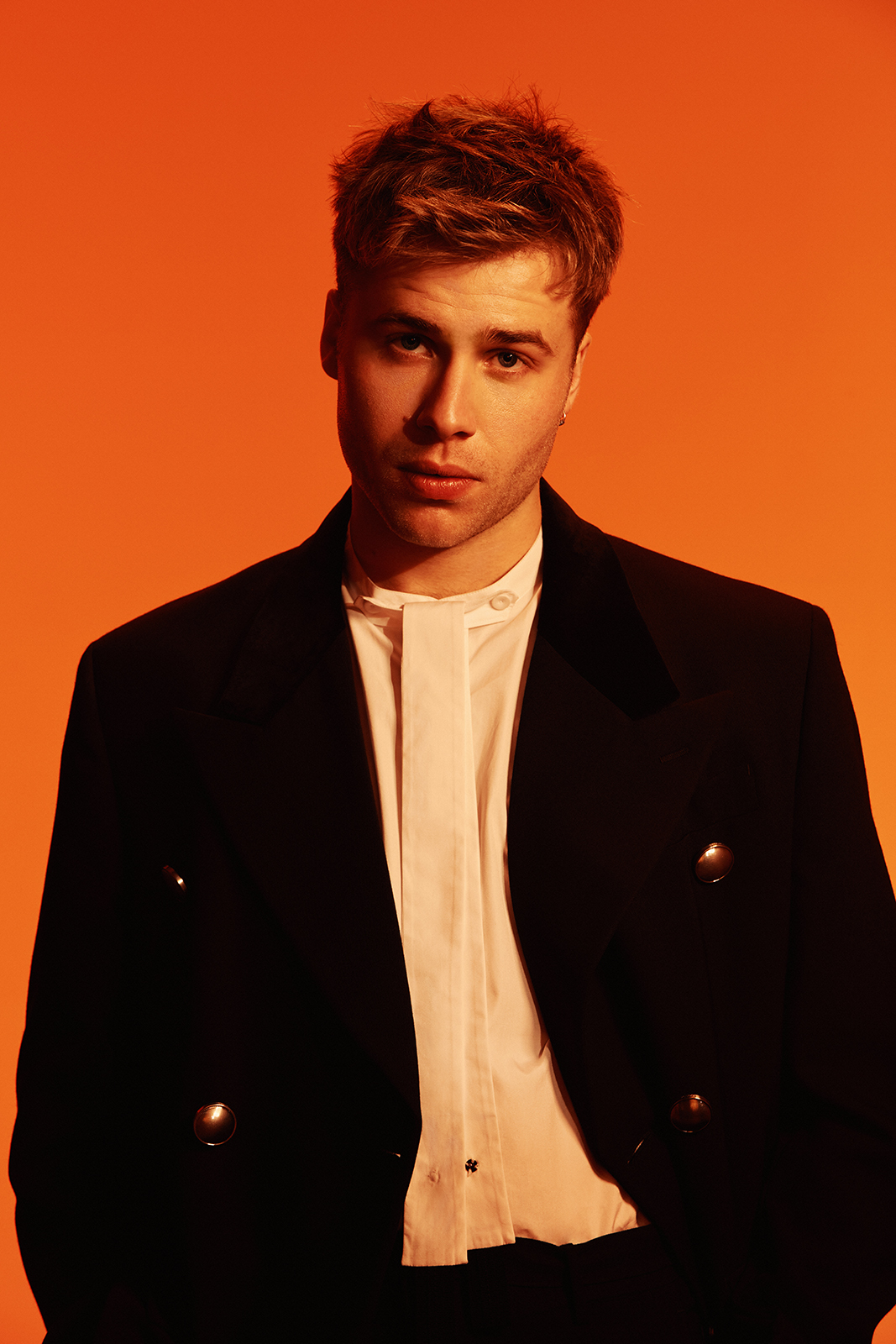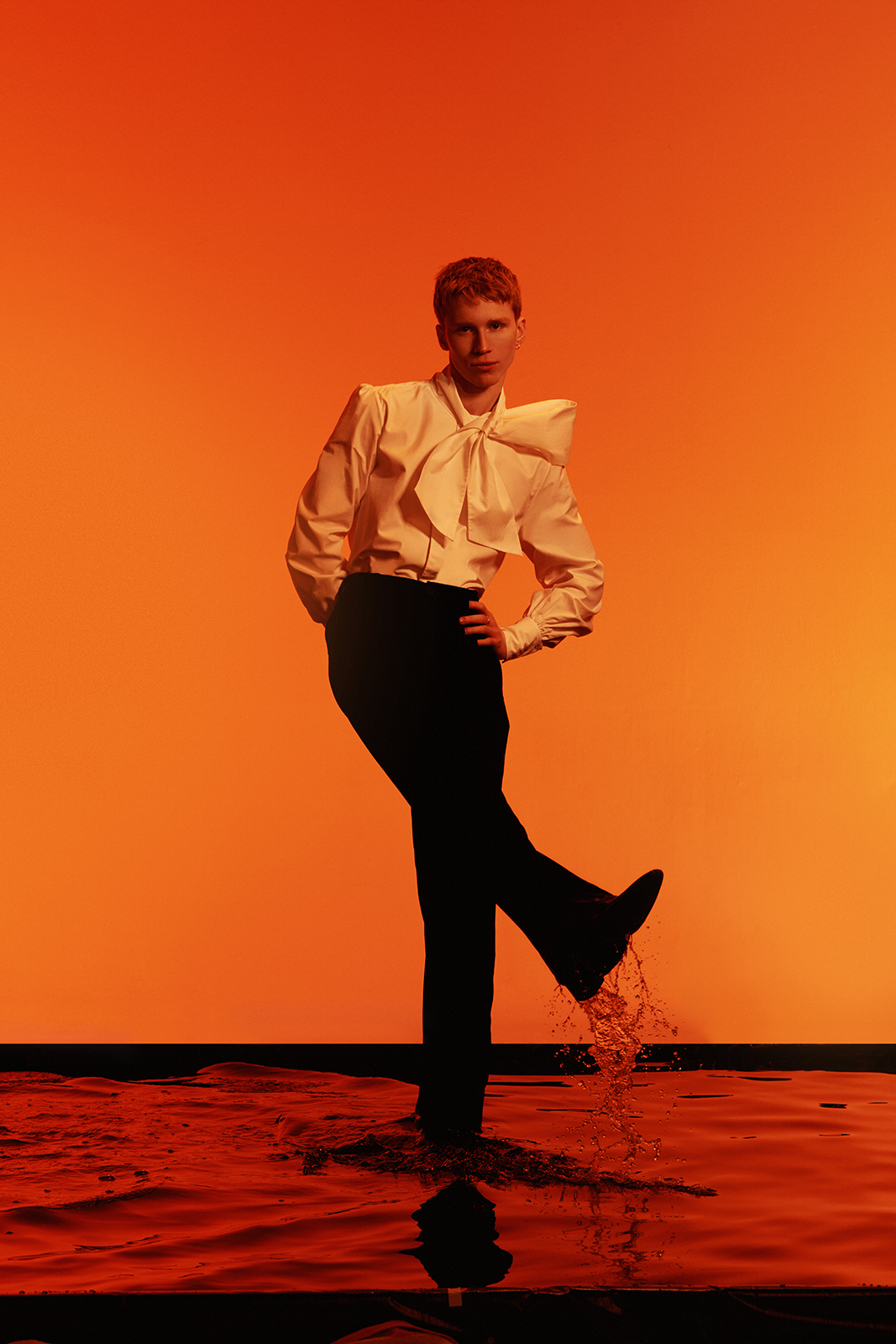
The second instalment of The Crown's sixth and final season dropped today and it's the young royals who are now taking centre stage. As well as the early courtship of Prince William and Kate Middleton, the final six episodes of the Netflix show focus on the relationship between brothers William and Harry, depicted by new actors Ed McVey and Luther Ford respectively.
Interest in the royals is still sky-high, with episode one of The Crown's latest season averaging 778,000 viewers during its first three days of release (via Forbes), and all eyes are on the actors portraying them. After all, these are roles that can't be taken lightly, considering their real-life counterparts are so firmly etched in the public consciousness.
Our new Royal Rebels shoot showcases four rising stars who are allowing viewers a glimpse of what the aristocracy gets up to behind closed doors - albeit with a hefty dose of imagination. Charithra Chandran (who plays Edwina Sharma in Regency Era-drama Bridgerton), Ed McVey (who plays Prince William in The Crown), Luther Ford (who plays Prince Harry in The Crown) and Ella-Rae Smith (who plays Queen Sareth of Cloud Dominion in the upcoming royal space drama Foundation) talk to us about how they feel about portraying the younger generation of royal characters and what rebellion looks like to them.
For Ed McVey and Luther Ford, the challenge is to depict the lives of people we already know, if only through formal royal appearances and orchestrated broadcasts. The last chapter of The Crown's sixth season focuses on events that took place between 1997 and 2005, finishing with the wedding of Prince Charles and Camilla Parker Bowles. Ed McVey and Luther Ford portray William and Harry as they grow from teenagers to young men, with the series finishing when both are in their early 20s.

For Ed, having grown up with a "neutral" view of the monarchy allowed him to get to grips with the human side of his character, Prince William. “I didn’t really have a particular view [of the Monarchy], either way. I come from a family that’s fairly neutral on the subject, which I think was incredibly lucky because I didn’t have any intrinsic voice on what [the role] needed to be, or what the emotions needed to be.
"Has [the show] affected the way I think of them now? I think you definitely have a level of empathy. I think you have to, in any acting, in any character that you play. Obviously you research – there’s lots and lots of research – so I probably have a bit more of an understanding than your average person."

Luther echoes this sentiment, explaining how the role allowed him to feel empathy for the royals. He explains: "The fact that I was neutral meant that I could be quite open. But from being in the show and thinking about the royal family a lot, I feel a lot of empathy, and I guess your job, in a way, is to identify with them.” Before adding: "Playing a person who’s so notorious was exciting and challenging. In some ways you have to zone that out, because it was very easy for it all to be quite overwhelming."
The actor, whose first major acting role is as Harry in The Crown, also revealed how "crazy" it felt to appear in the last episode of the iconic Netflix show. "To be involved in the series and be heavily featured in the final-ever episode is pretty crazy. I’m really proud."
The two actors had some tough issues to portray, considering that the last instalment of The Crown largely focuses on the death of Princess Diana - and the fallout afterwards. Ed went on to explain that to fully portray his character's grief, it involved a certain amount of rebellion against his instincts to always be "entertaining" or "engaging" in a role.

He tells us: "I sort of rebelled against [putting] this pressure on myself to be entertaining, or to be engaging or fun to watch. You should never, when you’re acting, think about being entertaining or being funny or being charismatic because I don’t think real people think about that in their day-to-day life.
“With William, especially in the earlier episodes, I was really committed to the grief, and actually staying strong to be truthful to the pain. I guess that was more of an internalised rebellion.
"I was like, I’m not going to try to be anything. I’m just going be in pain; let that be the truth of the character, and just sit and be a 16-year-old kid who’s lost his mum, who doesn’t want to talk to people, who doesn’t want to be the centre of attention, who doesn’t want to have conversations with his family. I wanted to let the other characters work for it – ’cause when you’re in pain, you’re not a team player: you’re hard work to be around."







